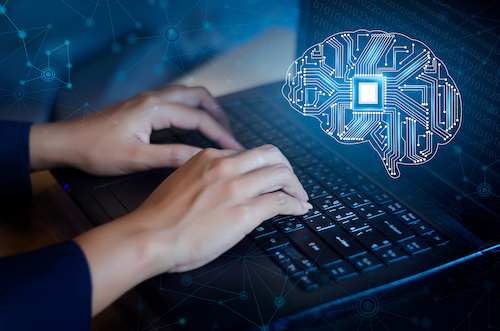Key factors:
False impression: AI will encourage college students to cheat.
Reality: Educators have to rethink how they assess pupil work.
By Carl Hooker
One of many largest misconceptions about AI in schooling is that it’ll encourage college students to cheat and trigger educational integrity considerations. Did college students cheat earlier than AI was round? Sure. Might college students use generative AI instruments like ChatGPT to cheat and reduce corners on an task? ABSOLUTELY. Nevertheless, there are a few main issues with this line of considering.
The primary is an fairness concern. Educators discover it socially acceptable for a pupil to rent a tutor to assist them write their faculty admission essay. We additionally settle for the truth that, many instances, a dad or mum helps construct their 4th-grader’s science honest mission. In each of those situations, we don’t think about it dishonest. Nevertheless, if a pupil makes use of generative AI to assist them edit their faculty admission paper or brainstorm a science honest concept, there’s a perception that it’s dishonest. By contemplating human-assisted assist honest however computer-assisted assist not honest, we create an fairness hole.
The second purpose why dishonest with AI is being mishandled is the idea that it’ll encourage college students to cheat. That is akin to saying {that a} vape will encourage college students to smoke. If you happen to take the vape away, you continue to don’t tackle the conduct. The identical is true with AI.
Slightly than give attention to college students utilizing know-how to cheat, educators ought to replicate on what they’re assessing. Are they really measuring pupil studying or is it a compliance-based task or worksheet? Is the “course of” being evaluated with the identical or larger care than the ultimate “product?” By focusing evaluations on the method of studying as a substitute of the product, educators can’t solely stop AI-assisted dishonest, however they will additionally higher consider a pupil’s understanding of a specific subject.
False impression: AI will eradicate jobs.
Reality: It should create extra jobs, with completely different necessities.
By David McCool
The straightforward false impression is that AI will eradicate jobs, however actually it is going to create extra jobs, with completely different necessities, than it is going to eradicate. These new jobs will disproportionately require sturdy expertise like important considering and collaboration, making it extra vital than ever for folks to study these expertise and, if they will, show them for employers by incomes microcredentials.
As we proceed into an AI-driven world, college students, staff, and jobseekers want to remain agile and aggressive within the market, so upskilling is crucial. Microcredentaling your sturdy expertise will display your skills for future jobs like Sentiment Evaluation, Content material Creators, and AI roles that require sturdy expertise and can’t be automated. In lots of industries, AI will merely change the character of accessible jobs. For essentially the most half, these remodeled jobs can be extra participating than the menial duties they’re changing. Manufacturing employees, for instance, could also be free of the manufacturing line the place they used to observe for faulty merchandise all day to as a substitute spend their time bettering processes utilizing insights gained from AI techniques.
AI’s position in schooling has modified, and never everybody understands what it may possibly do. A discovery we made through the pilot of our sturdy expertise course SkillBuild by Muzzy Lane is that learners have been unaware that AI was guiding them to enhance based mostly on their enter. They have been appreciative once they discovered that, in our microcredential programs, AI helps learners by offering the additional belongings and suggestions they should good their sturdy expertise—pushing them to the highest of at this time’s altering job market.
False impression: AI is a static software.
Reality: AI is consistently evolving.
By Wilson Tsu
What I see folks getting improper essentially the most about AI is considering that what it’s now’s what will probably be sooner or later. Take Open AI, for instance. Going from ChatGPT, which was launched in November 2022, to GPT4 in March 2023 was an enormous leap in functionality. When ChatGPT got here out and educators actually began digging into it, they could have thought, “It’s not going to go my class like a human would, so I don’t have to fret about this.” After which only some months later, they noticed that GPT4 may go their class. And now Open AI has introduced that folks will have the ability to create their very own GPTs. We don’t know the extent to which that’s going to alter issues, nevertheless it’s an enormous step.
My level is you can’t assume in static phrases with regards to AI. It’s altering so quick, and there’s a lot funding in AI proper now, so many sources, so many good folks engaged on it, that as quickly as you assume you realize what’s happening, it’s going to drastically change. And it’s altering so quick that nobody may even actually know what’s happening, aside from a small handful of people that work deeply in it. To me, the largest fact about AI proper now’s that as quickly as we predict now we have a grasp on it, it’s going to be completely different.


